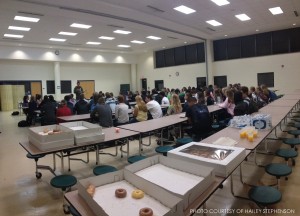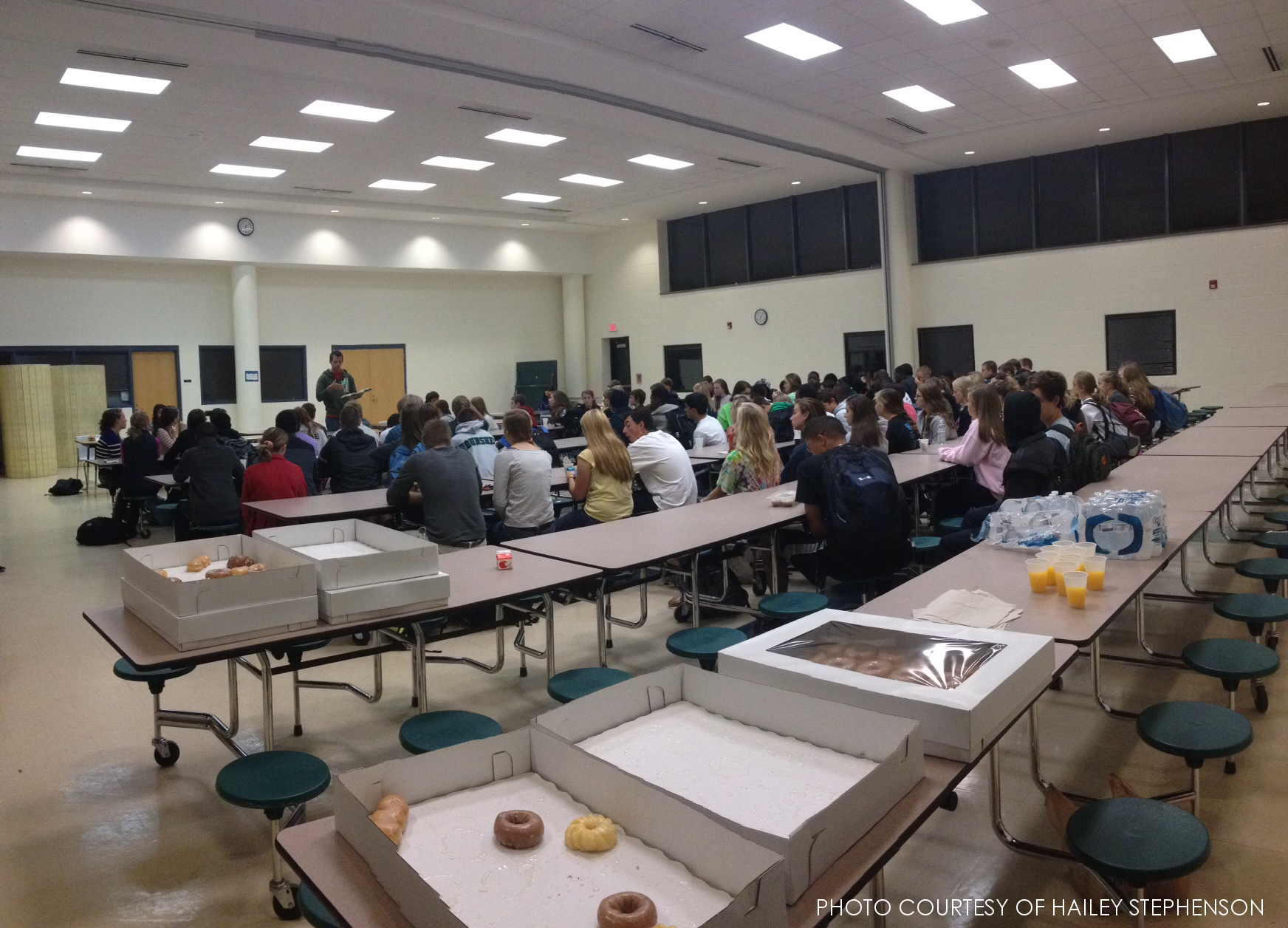
Prayer in schools continues to be one of the most passionately argued topics in our public school system today. The Supreme Court has tackled case after case of alleged First Amendment violations. Recent events in the University of Tennessee(UT)have only sparked this debate.
The long standing tradition of pregame prayer before UT football games was revoked, only to be reinstated later. The revocation came after a letter of complaint was sent from Annie Laurie Gaylor, co-president of the Freedom From Religion Foundation.
“Athletic events are very important to many college students and community members; they should not have to forgo these public university events to avoid religious ritual,” said Gaylor in the letter. “When you’re not religious or are of another faith and you get prayed at during events, it’s really very grating.”
Actually, Mrs. Gaylor, nobody prays at the non-Christians. Prayer is addressed to God. The letter suggests that the prayer is somehow UT is forcing religion on the players. It’s clearly the opposite. The players, and even faculty, should be able to express their faith with pride.
The letter takes on a separationist point of view, or those who believe in strict separation between church and state. The government should not be involved in any form of organized religion.
But isn’t religion already ingrained in our society?
We stand up for a pledge that says “one nation, under God”. We use currency that says “In God we trust.” When you testify in court, you must put your left hand on the Bible.
Moments of silence are a widely accepted tradition of mourning and remembrance. However, the moment of silence comes from the Quakers, who believed in silent prayer and worship.
In just a few examples, God is not separated from our country, and unless there is major reform, He will never be.
Separation of church and state would apply to the situation if the University of Tennessee was forcing their players to join in the prayer, but that’s not the case. The whole idea is quite simple: If you don’t want to pray, don’t pray.
The FFRF and its supporters need to stop worrying about what college football players choose to do, and move on to bigger issues. Problems that have some substance in a ‘separation of church and state’ case. Maybe the currency we use, or the pledge of allegiance, or our swear-in system in court. Public prayer, no matter the facility, is not one of these issues.
It is the players deciding to come together to pray for a competitive, safe game.
I contend it’s not an argument of trespassing on the rights of the non-Christian players. It’s about trespassing on the rights on the players who choose to pray.
Those who argue against public prayer continue to focus on the first part of the Free Religion section of Amendment I. It says, “Congress shall make no law respecting an establishment of religion.” They say UT is a public university and claim separation of church and state.
However, they fail to mention the second part of the Amendment. The Free Religion section of Amendment I says “Congress shall make no law respecting an establishment of religion,” but here comes the overlooked part. “Or prohibit the free exercise thereof.” To prevent prayer would be to restrict the players’ right to exercise their religion.
“If your faith defines you, then prayer is something that you are going to do,” said Fellowship of Christian Athletes (FCA) leader Selo Kuvana. “And if you feel led to pray in public, then pray in public.”
It is almost comical to think that the FFRF and their supporters expect Christians to practice their religion only in the privacy of their home. The group, as made clear by their name, wants an America that has freedom from religion, but they miss a key point:
The United States of America was built on freedom of religion.

Leave a Reply